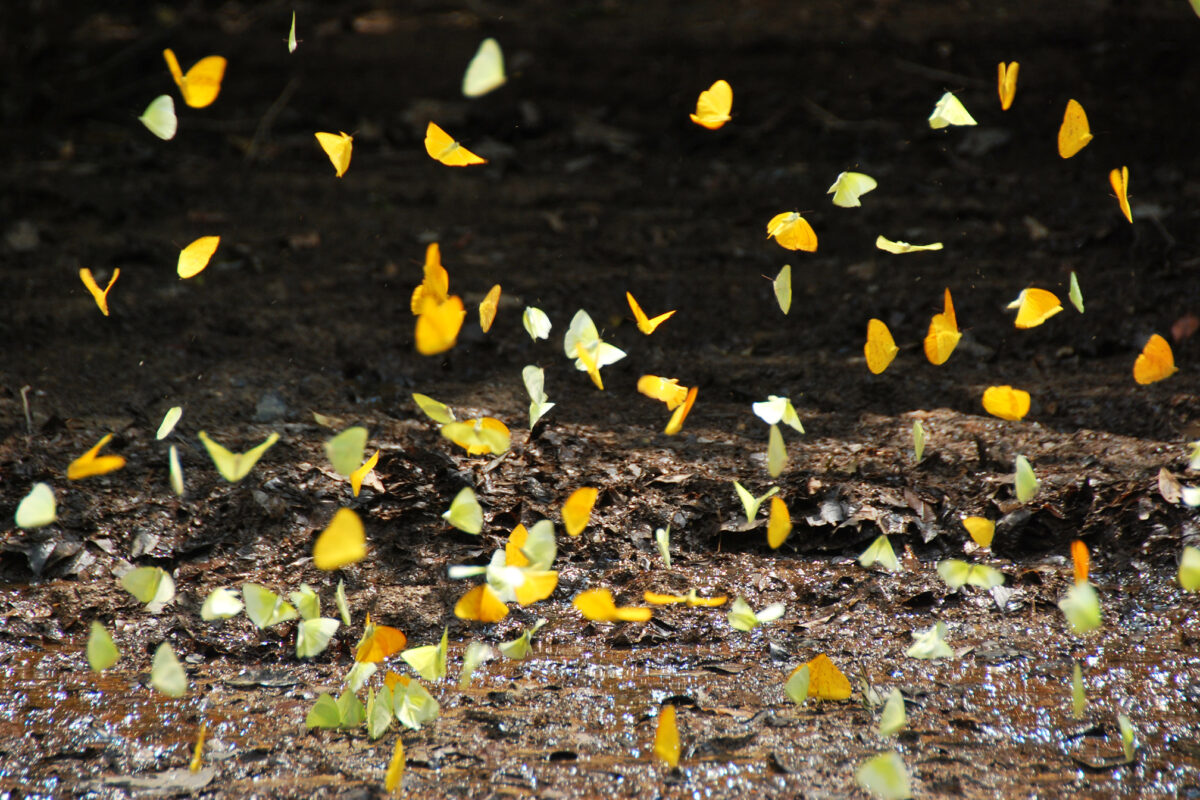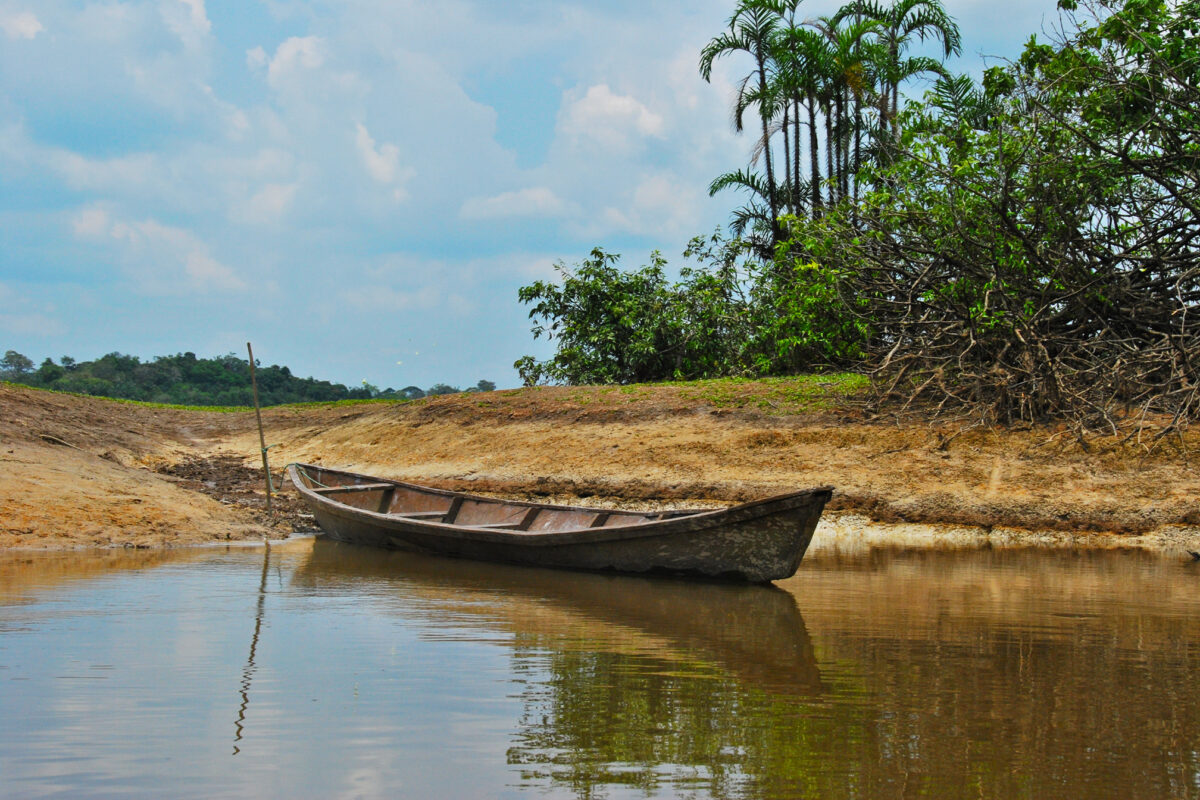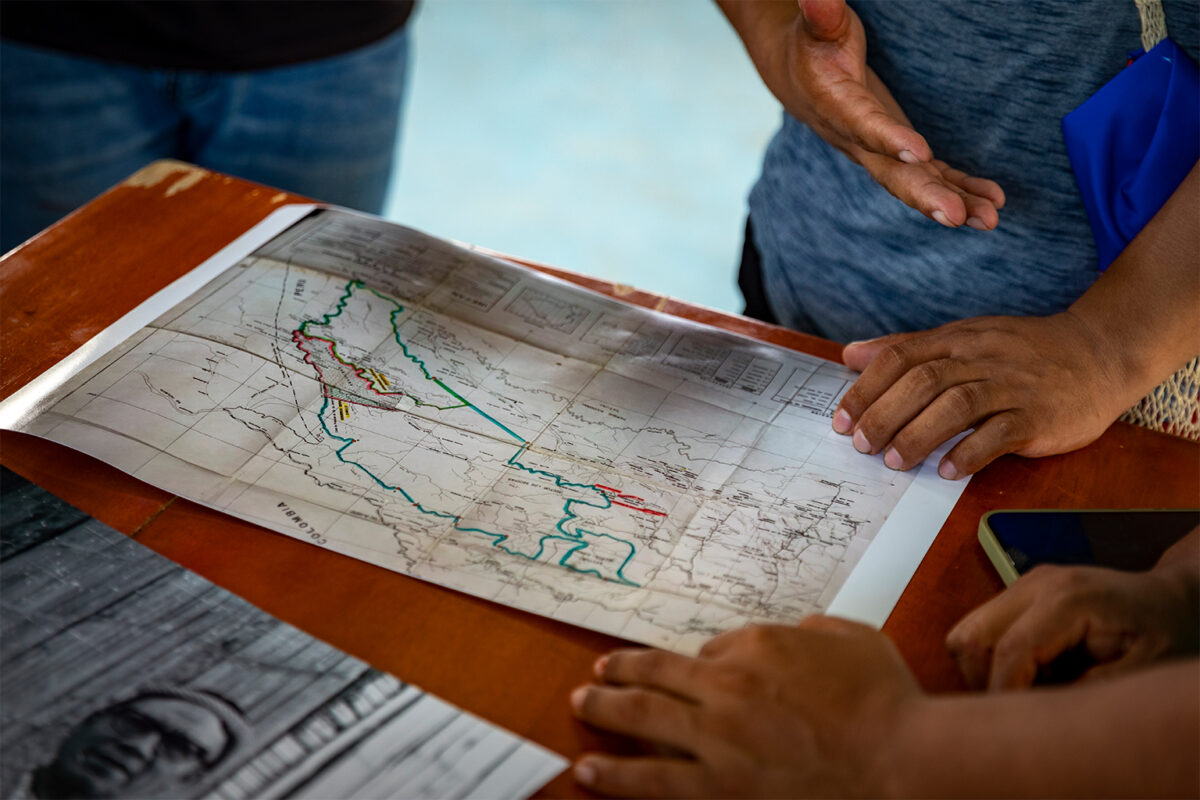LIMBUNG, Indonesia — Sarijan struggled to understand why they had come to arrest him. His mother tongue was Javanese, and he could parse only bits and pieces of Indonesian as the police officers interrogated him toward the end of Indonesia’s 2019 dry season.
“The first accusation was that I did not take initiative to put out the fire,” Sarijan told Mongabay at his house in Limbung, a village south of Pontianak, the capital of West Kalimantan province.
The now-62-year-old farmer said he had earlier set fire to a pile of decaying roots from rambutan trees, which produce a reddish, spiky fruit related to the lychee. Sarijan said cobras had made a nest under the roots, and that he decided to burn the clump to extinguish the threat in preparation for planting rice and chili.
At the station, Sarijan told police he’d made every effort to control the fire he started. He pleaded with them that he had excavated a ditch, which acts as a firebreak, around the burned area to isolate the blaze. Sarijan had learned this was a mandatory safeguard from his father, a farmer who moved from Yogyakarta on the island of Java to Kalimantan, the Indonesian part of Borneo, in the 1950s.
“They interrogated me there, and put me behind bars,” Sarijan said. “I could only cry back then.”
Smallholder farmers cultivating 2 hectares (5 acres) of land or less often use fire to clear away biomass after harvest, and to help bring nitrogen back into the soil as they prepare to replant the land.
However, ever since wildfires in 2015 immolated more than 2.6 million hectares (6.4 million acres), mostly in forests and plantation land in Kalimantan and Sumatra, Indonesian President Joko Widodo has instructed officials to get tough on those responsible for large conflagrations, which are sometimes traced back to small farms or corporate oil palm estates.
A new report published by Mongabay on Dec. 14 shows that prosecutors have brought cases against at least 206 farmers since 2014 — 190 of whom were sentenced to prison time, according to a review of court documents. Most, like Sarijan, were operating on 2 hectares or less.

Indonesia’s 2009 environment law allows small farmers to use fire as a traditional method of agriculture, provided they follow restrictions such as planting local species and growing food for subsistence.
Such cultivators must also act in accordance with “local wisdom,” a provision generally interpreted to mean they must be a member of an adat, or Indigenous, group, said Raynaldo Sembiring, a lawyer who runs the Indonesian Center for Environmental Law (ICEL), a civil society organization.
Limbung is among the oldest “transmigrant” villages in West Kalimantan, which refers to conurbations of farmers from population centers in Java and elsewhere who were incentivized to develop farther-flung areas of Indonesia during the 20th century.
Sarijan identifies as Javanese but he was born in West Kalimantan, making him a second-generation resident of the province.


Suparman, a lawyer from the Pontianak Legal Aid Foundation who defended Sarijan pro bono, tried to argue his client’s actions were protected under the “local wisdom” provision. But Indonesia doesn’t recognize any transmigrant communities as Indigenous.
“The characteristics of our Indigenous peoples are so unique,” Bambang Hero Saharjo, a scientist at the Bogor Institute of Agriculture (ITB) who is frequently called to testify in wildfire trials, told Mongabay. “And they can’t be equated with someone’s duration of living in a place.”

For Sarijan, the most frightening moment of his ordeal was when officers arrived at his home. Later he was remanded in custody in police cells first with the Pontianak police and later with the West Kalimantan provincial police. Through tears, Sarijan told Mongabay he’d found a place in the corner of the latter cell on a mat of old cardboard.
“I slept in front of the toilet door,” Sarijan said, through tears.
When he arrived in jail he was set upon by other inmates, an initiation to prison life commonly practiced to establish hierarchy among detainees.
The case proceeded gradually as Sarijan languished behind bars. The trial was delayed owing to scheduling conflicts with investigators. A reconstruction of the crime scene was convened by police.
Sarijan began to think he might not survive the heat and the aggression in jail. He didn’t know how to stop the violence, so he remained quiet throughout his detention. Sarijan’s wife described her husband as a quiet man with a gentle temperament. He said he didn’t speak much with his cellmates.

A court later sentenced him to seven months in prison, and he was transferred to the Pontianak Class 2A Detention Center. There, the violence abated, but Sarijan’s health deteriorated. His wife handed over 500,000 rupiah ($32) to move her husband to a nicer cell. She took on debt to cover the lost income and to afford the payments required to visit her husband.
Today, Sarijan is a free man living back at home with his wife. The couple has two children, but their eldest son works in a neighboring village and the younger child works in a different district. They continue to work the land, but Sarijan has been left fearful of police and he refuses to till the field.
The family buys rice instead of growing their own, raising their cost of living by 60%.
“I still feel tense when police officers pass by,” he said. “I think I am still traumatized.”
By Aseanty Pahlevi in Pontianak, Philip Jacobson in Chiang Mai, and Hans Nicholas Jong in Jakarta.
Traditional small farmers burned by Indonesia’s war on wildfires
FEEDBACK: Use this form to send a message to the author of this post. If you want to post a public comment, you can do that at the bottom of the page.
Transcript
Notice: Transcripts are machine and human generated and lightly edited for accuracy. They may contain errors.A transcript has not been created for this video.


















